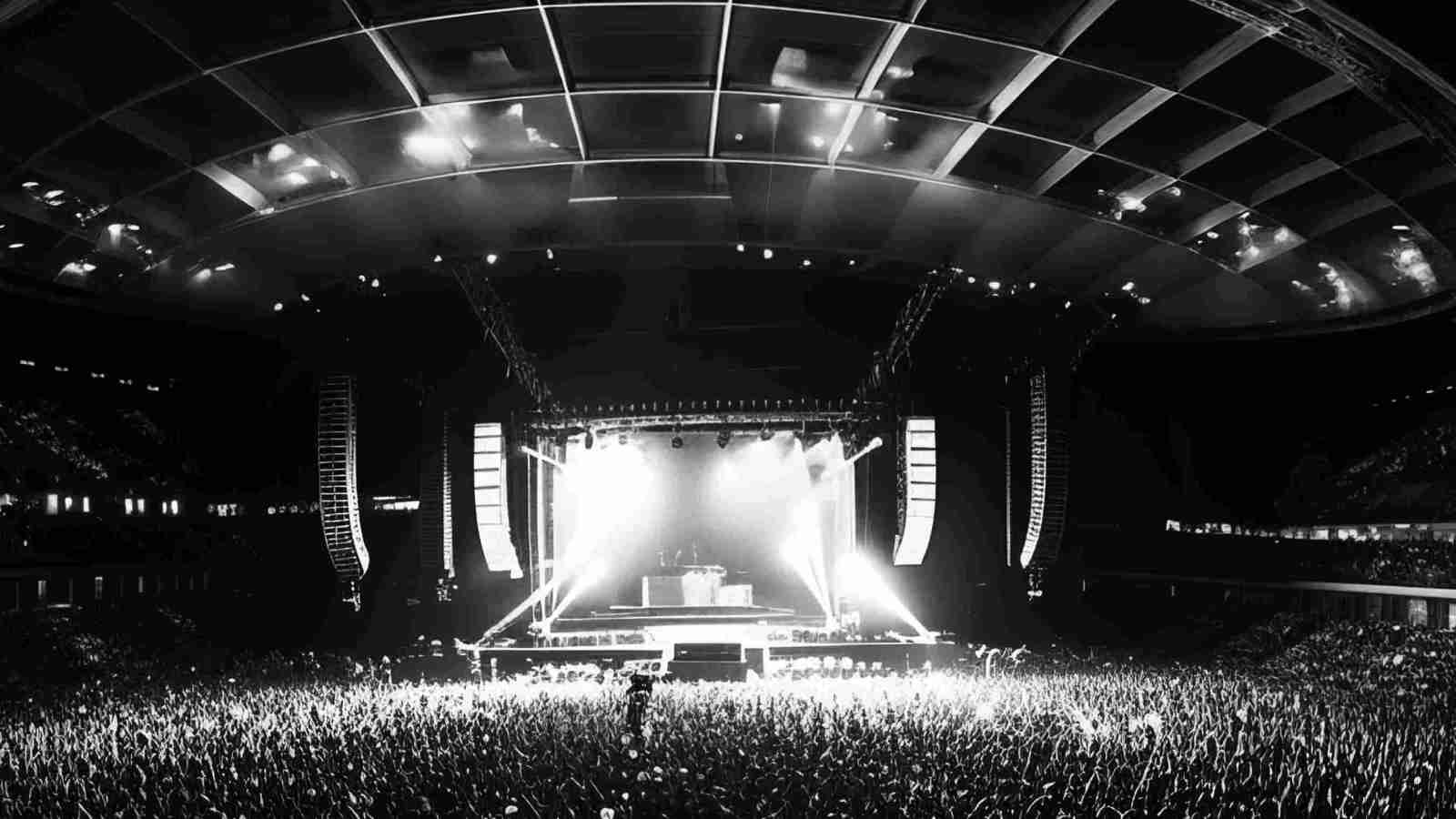AI developments have surged in the past year, happening faster than expected and causing concern for governments due to their recent advancements. It is now possible to create realistic movies using generative AI with nothing more than a bit of content and a few prompts. However, this has enormous implications for more than just film. The entire entertainment industry may be moving into a new era where robots can replace hosts, drones can manage fireworks shows and robots have even conducted orchestras.
Until recently, robots weren’t capable of regular human interaction — or at least in a manner that people would appreciate, let alone tolerate, at live events. All that has now changed. MSG Sphere in Las Vegas certainly serves as a testament to that. The music and entertainment venue has introduced an army of Aura robots to assist with various tasks, including offering directions, entertaining guests and participating in conversations — some of which may be complex.
Though not as immersive as the Sphere, a recent CES event took technology to another level with the debut of what’s being called “drone soccer.” In this iteration of the game, players no longer take to the field; instead, drones take flight. One player on each team serves as the striker and attempts to fly their drone through a circular goalpost to earn points. What this could mean for the future of sports is still a matter up for debate, but it does open new channels for entertainment. Rather than watching a game, people could participate.
There’s also a new realm of tourism coming to light. NatureEye, for example, is exploring the idea of immersive drone flights, where tourists are whisked away to destinations around the world. And while nothing beats visiting exotic locations in person, there’s an opportunity here for people who don’t have the time, money or mobility to travel to these destinations without technology.
What to Expect in the Years Ahead
Technological advancements continue to bring transformative changes to what’s possible in nearly every industry. Having been a part of these changes in the event and entertainment world, I can safely say that more is to come. The possibilities will be endless as artists and technologists innovate and collaborate. The following, however, are likely to make their way further into performance-based art:
1. Robotics will likely take the stage.
Using robotics at live events is still cost-prohibitive for small companies and entertainment groups. However, as technology expands and improves, it will undoubtedly become much more affordable. Expect to see an increasing number of businesses offering rentals of robots to host large events, if not take to the stage and perform themselves. In fact, the biggest name in live entertainment, Cirque du Soleil, is currently developing a new show featuring robot performers.
The Rolling Stone Culture Council is an invitation-only community for Influencers, Innovators and Creatives. Do I qualify?
2. The use of drones will continue to grow.
Already, drones have found their way into many Fourth of July celebrations, with cities around the country replacing traditional fireworks with UAV (Unmanned Aerial Vehicle) displays. Chances are good that these shows will become more grand, sophisticated and familiar. Rumor has it that Disney will add drone shows to the nighttime spectaculars at its Anaheim theme parks, similar to those featured at Disneyland Paris. Others will likely follow suit.
3. The advent of new entertainment genres.
While technology won’t likely replace existing entertainment or sporting events, it does present an opportunity for businesses to get involved in new verticals before they take off. Who would’ve thought playing video games would ever become a spectator sport? Yet, it’s fast becoming one, with last year’s League of Legends World Championship racking up 6.4 million viewers at its peak. The same will likely come to pass with both drones and robotics. Drone soccer serves as an example, with locations cropping up all around the U.S.
4. Job security will come into question.
AI will impact job security for existing human entertainers, but it may not be as dire as it sounds. Google made headlines this past December for laying off tens of thousands of employees whose jobs were no longer deemed necessary, thanks to generative AI. And that’s just Google. Goldman Sachs estimated that as many as 300 million jobs could soon be lost globally due to AI. However, most of these jobs will be in the white-collar sector, focusing on more mundane and repetitive tasks. While there is a novelty to seeing a robot dance, we’re a long way off from humans wanting to see their favorite acts replaced by robots. Honestly, should people applaud a machine?
5. Losing the competitive edge will leave companies behind.
If drone shows and immersive robotic experiences become more of the norm, failing to incorporate the technology into an event could lead to the loss of market share. However, there is one caveat: merely copying what others are doing in the space will do a company no favors. Instead, monitoring feedback to ensure the technology will attract the masses to an event is crucial.
The rapid evolution of AI, robotics and drone technology has transformed the face of industries around the globe, and that won’t change anytime soon. How artists, performers and venues leverage the technologies available to them will indeed change. It’s all a matter of understanding what’s possible and whether it makes sense for the audiences who frequent the events.





